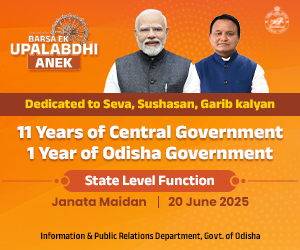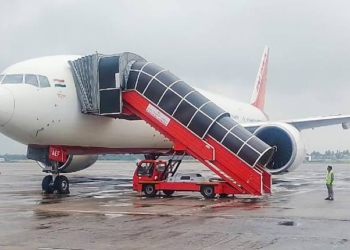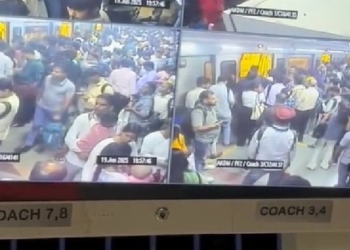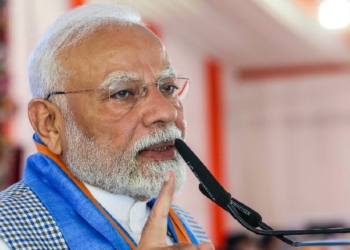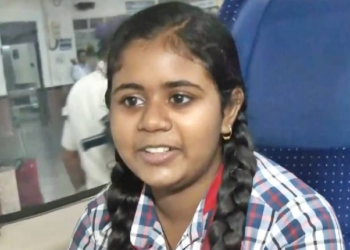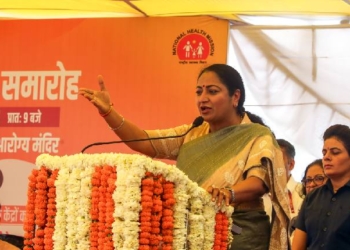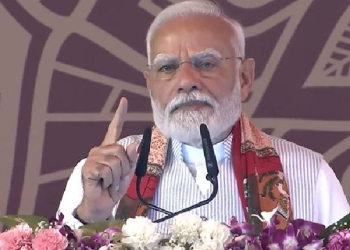New Delhi: A five-judge bench of the Supreme Court on Wednesday allowed the Centre to file additional submissions seeking reference of the Delhi-Centre dispute over control of services to a larger bench.
Solicitor General Tushar Mehta, representing the Centre, submitted before a five-judge bench headed by Chief Justice D.Y. Chandrachud, “I have filed an application for reference”. The Chief Justice replied, “We did not hear arguments on reference. It was never argued, now we are in rejoinder…”. Mehta pressed that reference is needed and added that they do not want to be remembered in history for “handling over capital to complete anarchy”.
The bench – also comprising justices M.R Shah, Krishna Murari, Hima Kohli, and P.S. Narasimha – reserved the judgment after hearing Mehta and senior advocate A.M. Singhvi, representing the Delhi government, for almost four-and-half days.
During the hearing, the top court said that reference to a larger bench has to be argued at the outset and pointed out that hearing in the case is nearing end. Senior advocate Singhvi, representing the Delhi government, opposed Mehta’s submissions. Mehta argued that when he filed the application seeking reference to the larger bench Delhi government opposed and the court told him that it can be argued during submissions. “Reference is essentially on the ground that contours of federalism between Union and Union Territory require relook. It is covered in my arguments”, said Mehta.
Earlier, the Centre had filed an interim application seeking reference to a larger bench of nine or more judges in the Delhi-Centre dispute over control of services.
Chief Justice Chandrachud said, “We would have looked at the matter differently, reference was never argueda”. Mehta requested the bench to allow him to submit the application. The bench replied, “we will consider…”. However, the Chief Justice told Mehta that the aspect of reference was not covered in his arguments. Mehta said all points were covered without using the word “reference”.
Opposing Mehta’s arguments, Singhvi submitted that this matter was listed for hearing at least 10 times, first it went to a three-judge bench, and reference was not mentioned. He added that when the matter was listed for hearing recently, then reference was raised.
Singhvi said it is an “ambush” argument and not a whisper was made regarding reference during long arguments. Mehta said it is not a delaying tactic but adjudication of a very important issue relating to the national capital.
The top court allowed Mehta to file submissions on reference to the larger bench in the Centre-Delhi dispute over control on ‘services’.
The apex court was hearing a case between the Delhi government and Centre in connection with the administrative control over transfers and postings of civil servants.
The application filed by the Centre had said that it is seeking reference of appeal to a larger bench of this court for a “holistic interpretation” of Article 239AA of the Constitution, core to the determination of issues involved.
In July 2018, a constitution bench had held that the executive power of the Union government in respect of NCT of Delhi is confined to land, police and public order under subsection 3 of Article 239AA.
The Centre, in its application seeking reference to a larger bench, said that the issue pertains to the administration of the country’s capital and, therefore, it is a question of constitutional interpretation.
Seeking reference to the larger bench, the central government contended that constitution bench judgment has given rise to an anomaly wherein though the Parliament undeniably enjoys the legislative supremacy, yet the council of ministers of GNCTD would now enjoy the executive supremacy, which effectively means that as regards the executive powers, Delhi despite being a Union territory and not a full-fledged state, has been elevated to the status of a state.
(IANS)
